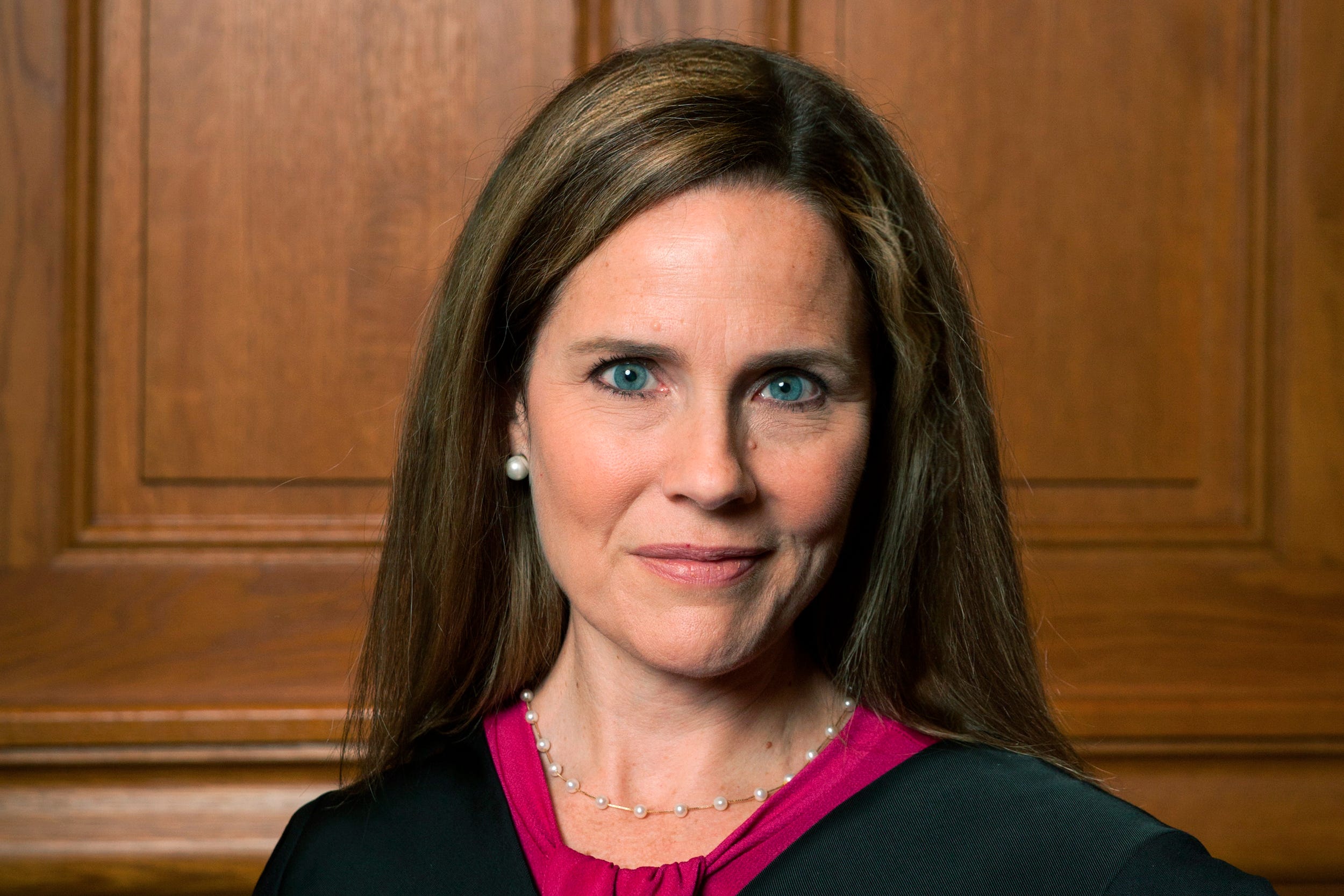
Rachel Malehorn via AP
- Amy Coney Barrett is on President Donald Trump’s shortlist to replace Supreme Court Justice Ruth Bader Ginsburg, who died on Friday.
- However, in February 2016, Barrett expressed concern in CBS News interview about judges who can dramatically alter the ideological direction of the highest court in the land.
- When discussing who would take Justice Antonin Scalia’s place, Barrett said that replacing him with “someone who could dramatically flip the balance of power on the court” was “not a lateral move.”
- Barrett, a favorite of social conservatives, has served on the US Court of Appeals for the Seventh Circuit since November 2017 and works as a professor at the University of Notre Dame Law School.
- Visit Business Insider’s homepage for more stories.
Amy Coney Barrett, a leading candidate on President Donald Trump’s shortlist to replace Supreme Court Justice Ruth Bader Ginsburg, previously expressed reservations about judges who could dramatically change the ideological direction of the court.
In a February 2016 interview with CBS News following the death of Justice Antonin Scalia, Barrett, who clerked for Scalia from 1998 to 1999, discussed the Senate’s role in confirming a new judge. At the time, then-President Barack Obama had not yet announced that Judge Merrick Garland, of the US Court of Appeals for the District of Columbia Circuit, would be his nominee, but with the Senate in Republican hands, the debate over election year nominations was in full swing.
When asked about the precedent for such a move, Barrett said, “It shouldn’t be a surprise that the Senate is willing to push a president’s nominee through in an election year when they share the same political affiliation,” before pivoting to former Justice Anthony Kennedy, who was nominated to the court in November 1987 to replace retiring Justice Lewis F. Powell Jr. when Ronald Reagan was president and Democrats controlled the Senate.
“Kennedy was nominated in November of the prior year [to the 1988 election], after the [Robert] Bork nomination had failed and [Douglas] Ginsburg withdrew his nomination,” she said. “The wrangling for the spot had been in play for a long time before that. Moreover, Kennedy is a moderate Republican and he replaced a moderate Republican, Powell.”
Barrett added: “We’re talking about Justice Scalia, the staunchest conservative on the court, and we’re talking about him being replaced by someone who could dramatically flip the balance of power on the court. It’s not a lateral move.”
She went on to say that "we live in a different time" from when Kennedy was confirmed by the court 97-0, reiterating that the Senate has the power to advise on nominations, independent of any rules set by either political party.
"Confirmation hearings have gotten far more contentious," Barrett said. "The president has the power to nominate and the Senate has the power to act or not, and I don't think one of them can claim there's a rule governing one way or the other."
Barrett, 48, has served on the US Court of Appeals for the Seventh Circuit since November 2017 and teaches at the University of Notre Dame Law School. If nominated and confirmed, she would become the youngest justice on the Supreme Court.
